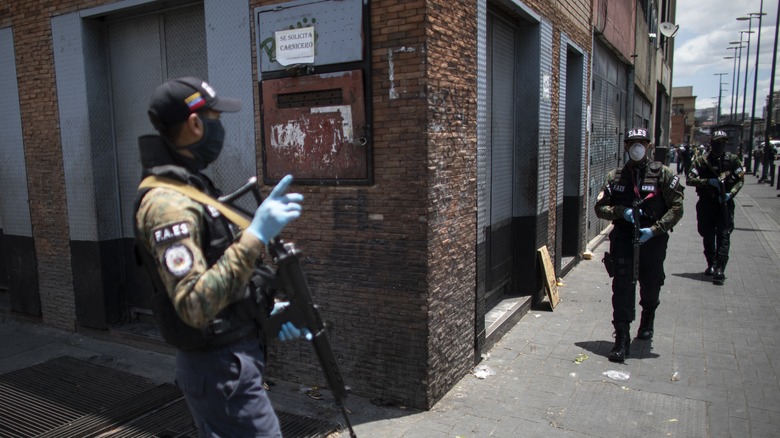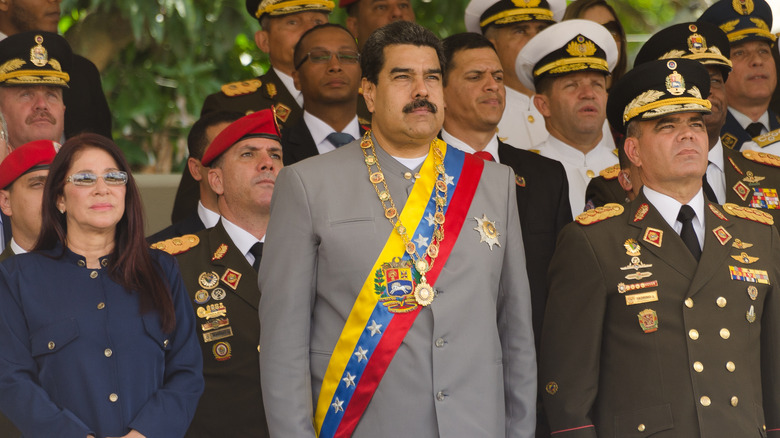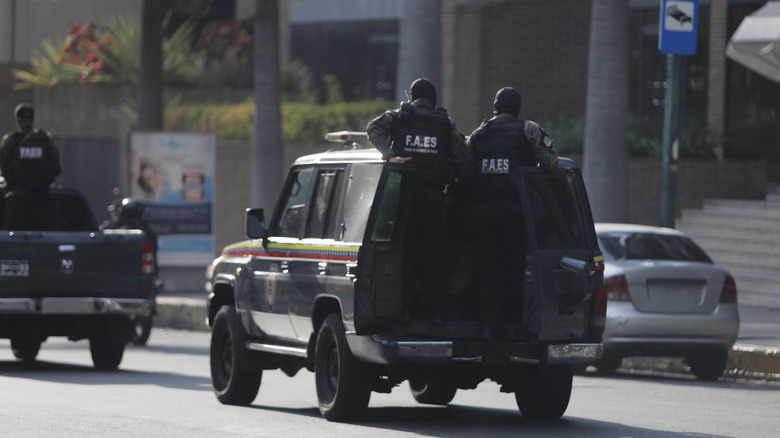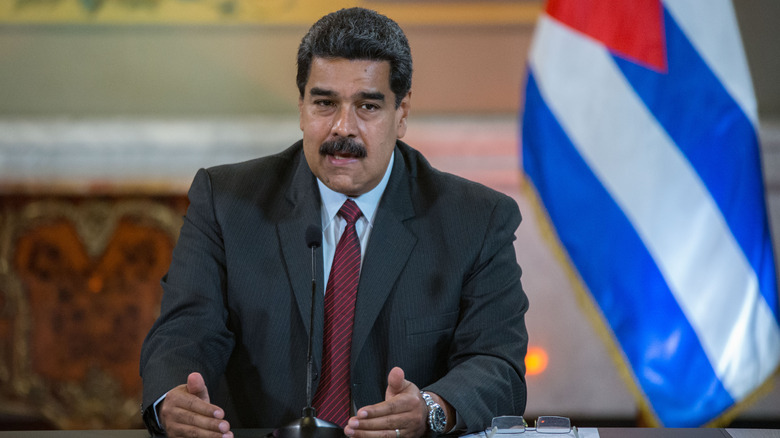The Staggering Number Of Citizens Killed By Venezuela's Government In 2018
Empires have risen and fallen in every corner of the globe since the human race came into existence and decided to be social animals. Regimes come in one year and are outed the next. Depending on where in the world we're talking about, this could happen for reasons as simple as a popular vote or as chaotic as a coup or a full-on insurrection. In the case of Venezuela, things got tragically messy, and because of that, thousands of people lost their lives.
The country has been economically unstable for a few years, as BBC explains, which led to political instability and internal tensions within the government as well. The combined instability spread by those factors through the core of Venezuelan leadership are the root of the staggering number of Venezuelan citizens killed by the government in 2018. It's a number that's truly appalling, regardless of the reasoning behind the deaths. What led the country the point of killing such a high number of its own citizens? Complicated events and compounding instability all contributed.
One thing you need to know about the tensions in Venezuela that led to the government slaughtering its own citizens in 2018 is that the government was so unstable that it eventually was on the verge of splitting in two, which The Conversation says happened early the following year, the result of poor leadership.
Tensions arise in Venezuela
Hugo Chavez ran the country under a new constitution from 1999 until his death in 2013, at which point the country held a special election, in which Nicolás Maduro barely captured the presidency with 50.6% of votes.The lower-income folks of Venezuela liked Chavez because the leader had funded social programs with cash generated by oil interests. Prior to Chavez, that money usually ended up in the pockets of the country's wealthier citizens. The majority of people likely didn't have the same draw to Maduro, whose regime ran the country's economy into the ground. It didn't help that oil prices, which accounted for 20-40% of the GDP annually, fell drastically, from $130 per barrel to just $30 per barrel in late 2015.
When the opposition to Maduro's United Socialist Party took the majority of National Assembly seats in 2016, after the leader's public standing had taken a hard hit, they tried unsuccessfully to remove Maduro from office. Instead, Maduro ended up pulling a sneaky move that stripped the National Assembly of its legislative powers in 2017. In 2018, there was another election. Maduro was declared the victor again, but as BBC explains, individuals and nations alike believed the election was rigged, and many of Maduro's supporters now opposed him. He didn't like that much.
Resistance to authority
In most industrialized countries of the modern day, we expect some sort of resistance to poor governmental leadership, and usually, we expect that resistance to come without death sentences. Apparently, Maduro disagreed. In a United Nations report documenting extrajudicial killings in Venezuela during 2018 and parts of 2019, broken down by PBS, it was reported that the government had slaughtered thousands of private citizens in the name of "resistance to authority."
According to the Venezuelan government, they'd used that excuse to kill 5,287 of their own people under in 2018 alone, with an additional 1,569 killed from January 1 to the middle of May 2019. Of course, those are the official numbers as tallied by the government under Maduro's control. Those numbers grow even bigger when they're counted by a third party, such as the Venezuelan Violence Observatory, who says the killings actually numbered at least 7,500 in 2018 alone.
The report mentions how the Venezuelan special security forces, known as FAES, who carried out a vast number of the killings, had such a violent reputation that those interviewed for the report often called them a "death squad" while others referred to them as an "extermination group."
The Maduro regime claims the UN wasn't looking at the right facts
Human Rights Watch (HRW) says many of the killings happened in poor neighborhoods that supported Maduro when he first took over after Chavez' death but turned their backs on the leader once he'd failed them. Maduro's government says "there are countless inaccuracies, errors, facts taken out of context and false assertions" in the report (via PBS) and insists instead, in some weird ethical work-around that few are likely to follow, that the UN needs to focus on all the achievements they're making in human rights, not the unnecessary killings.
The death toll of 2018 surely looks bad, but it's not the only year with high killings on the books. HRW lists 4,998 similar deaths the year before and 5,995 the year before that. Although Maduro's regime may have built hospitals and jails, created food distribution centers, and established housing programs, that doesn't really balance out tens of thousands of killings at the hands of "death squads" the way the Maduro government seems to think it should.
HBO Max premieres the documentary "A La Calle" ("To the Street"), about the Venezuelan people's fight to reclaim their country from Maduro, on September 15. The trailer is posted on YouTube.



